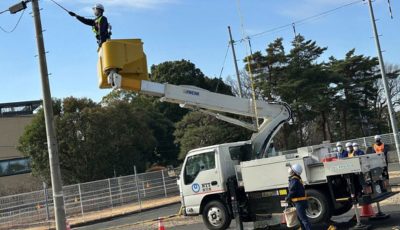Alien workers’ travel concerns continue
A registered nurse who just recently traveled to Hawaii and Guam using parole and without a B1/B2 visa is now also being asked to apply for a $360 advance parole to go to Guam to represent the CNMI in an Aug. 3 to 4 badminton tournament. She has a pending H visa application.
“Who would want to lose $360 when you know that Guam USCIS office will only reject an advance parole application to go to Guam just like what they told a previous applicant? They allowed me to travel to Hawaii for a nurse conference and then to Guam using only parole. But they said there were recent changes to the process so I have to apply for advance parole, even though I told them I’m not traveling outside the U.S.,” the nurse working at a private clinic told Saipan Tribune yesterday.
She was among those handpicked by the Northern Marianas Badminton Association to represent the CNMI in a tournament in Guam, and her Infopass appointment with U.S. Citizenship and Immigration Services-Saipan office was yesterday.
“I’m disappointed that traveling to Guam now costs $360 for an advance parole application that is more likely to be rejected by USCIS Guam. But I still encourage others with Infopass appointments with USCIS Saipan to show up on their appointment date,” said the nurse, who has been working on Saipan since 2003.
The nurse said she brought up the case of Jershwin Angeles, who followed USCIS-Saipan’s instruction to file for a $360 advance parole to go to Guam, only to have USCIS-Guam reject that application.
“But they told me that his case is different from my case. Since the beginning, USCIS said advance parole is only for travel outside the U.S., and I am only going to Guam which is a U.S. territory,” said the nurse, who requested that her name not be published.
Angeles has a valid Commonwealth-only worker permit, while the nurse has a pending H visa application.
Angeles, who was eventually given parole by USCIS Saipan on Friday, said USCIS policies on travel to Guam or the U.S. are “frustrating, confusing, and inconsistent.”
Another CW permit holder, Marilou Malasarte, was also denied parole and was told to apply for a $360 advance parole (Form I-139) instead.
Malasarte said she has a valid advance parole, but that advance parole she used to travel to the Philippines has a notation that says it cannot be used for travel to Guam or any part of the United States, she said.
A few more CW permit holders said they will still try to apply for parole with USCIS Saipan today and the next few days, to go to Guam.
Angeles, Malasarte, and the nurse said they were all told that policies about travel to Guam and the U.S. were just recently changed. They said they were referred to question #55 in USCIS’s question-and-answer page under the transitional CW program resource page online.
USCIS reiterated that CW status is a CNMI-only transitional worker category, and no special benefit to travel anywhere else is attached to CW status. But it said it recognizes that those in CW status may have a legitimate reason to travel elsewhere in the United States, as they may have been allowed to do in the past as temporary visitors or parolees before acquiring the CNMI-only CW status.
USCIS said it has “made provisions reasonably to accommodate this within the limitations of a CNMI-only status, just as we have done on a case-by-case basis since 2009.”



























